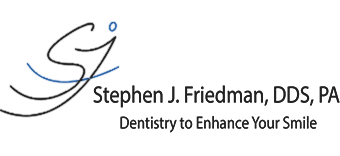Preventive Dentistry
Investing in preventive dentistry is one of the easiest and most effective ways to prevent common oral health problems such as tooth decay and gum disease. At his practice in Silver Spring, Maryland, Stephen J. Friedman, DDS, PA, regularly uses preventive dentistry to treat and address issues like bad breath, receding gums, and cavities. If you want to preserve your smile for years to come, make an appointment by calling the office or clicking the online booking tool today.
What is preventive dentistry?
Preventive dentistry is a discipline of oral health care focused on reducing disease risk and susceptibility, and keeping the teeth and gums healthy. By participating in preventive dentistry, patients can significantly reduce their risk of common problems such as excessive enamel wear, decay, gum disease, erosion, and other forms of dental disease.
Investing in preventive dental practices also presents patients with an opportunity to learn more about oral health and how it relates to the total health of the body. Following a review of dental and medical history and a comprehensive oral exam Dr. Friedman’s team will develop a custom preventive plan for every patient.
There are many forms of preventive dentistry, but there are three practices that are particularly important. These include the following: Good personal oral hygiene practices
The easiest way to lower your risk of oral health problems is to adopt good oral hygiene habits and to be diligent and consistent in applying them. We emphasize “our partnership” with every patient because while we see you periodically a few times a year for preventive maintenance, you have the opportunity to provide treatment every day to lower your risks of decay and periodontal disease. We recommended: cleaning between the teeth and around the gumline regularly for two minutes twice daily. When the patient’s risk of decay susceptibility known as CAMBRA is high, appropriate techniques to lower that risk can be applied. For example, the use of dentifrices and rinses (fluoride and pH-controlled rinses) that can reverse the demineralization process and reduce the forms of decay-producing bacteria in the patient’s mouth may be called for if you show signs of high caries (decay) risk. Also, our hygienist will point out the use of appropriate tools to effectively clean your teeth, restorations and replacements and care to your gums. Our hygiene department also recommends replacement of worn toothbrushes and other cleaning tools every 3-4 months.
2) Eating a healthy diet
Eating a healthy, well-balanced diet helps protect your teeth and provides the basic building blocks for healthy gums by providing the vitamins, minerals, and nutrients needed for building healthy tooth structure and the connective tissue for healthy gums; and reducing the production of acids by your oral flora, and the exposure to acid foods that contributes to the decay, erosion and attrition process.
3) Visiting the dentist regularly
You should visit your dental team regularly for a thorough examination, professional dental and gum care, and appropriate maintenance.
Timely dental checkups present an opportunity for you to have your team of dental professionals reinforce your good dental health practices and identify your potential problems and treat them before discomforts or debilities arise. This keeps dental health up and dental costs down in the long run. With oral cancers on the rise in some segments of our patient population, regular oral cancer screenings, will also save lives.
If you want to keep your smile healthy and shiny white for years to come, don’t put preventive dentistry on the backburner. Make an appointment at the office, Stephen J. Friedman, DDS, PA, today by calling or clicking the online booking tool.


